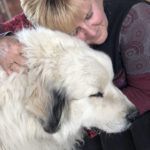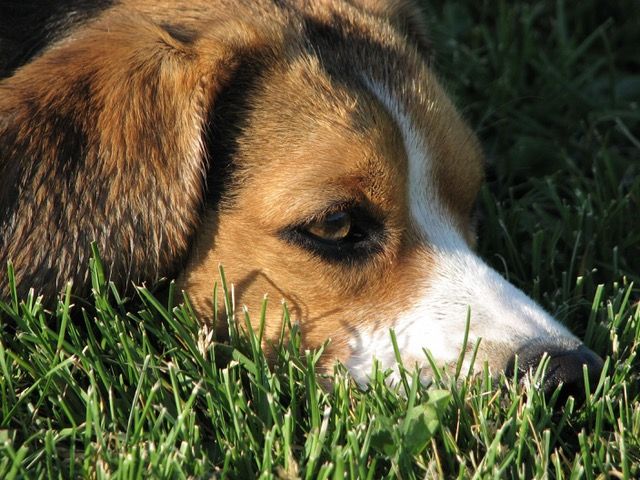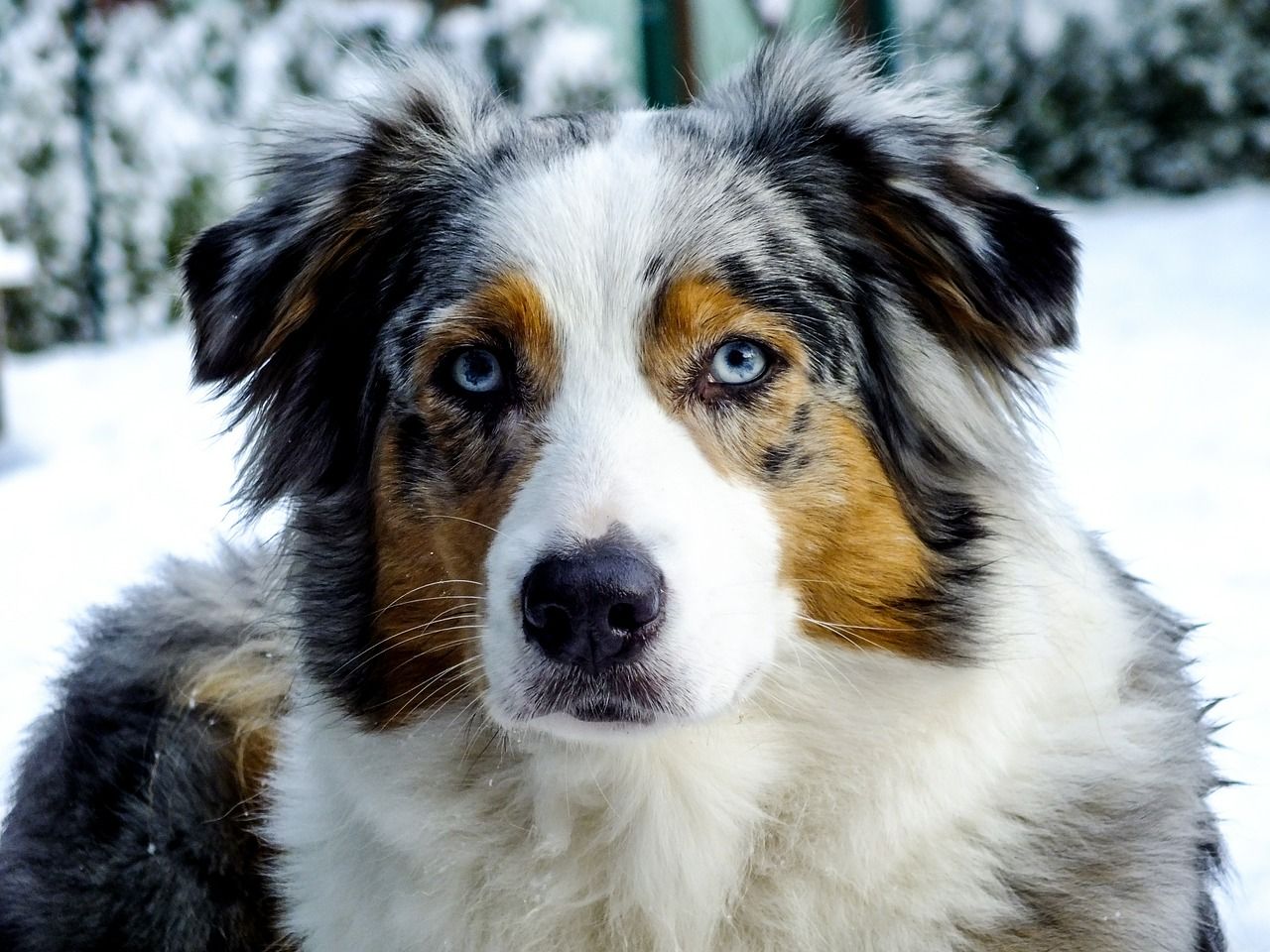Guest post courtesy of Jamie Lee. The views and opinions expressed in this article are those of the guest author and do not necessarily represent the views of Val Heart & Heart Communications Enterprises Inc.
Doggie Depression; How to Help Your Dog Out of the Blues
Everyone that shares their life with a dog, knows the feeling of being the most important person in the room, especially when returning home after being gone for the day, or even for a few minutes. Our dogs greet us at the door with wags of delight. But what if you walk in the door and your pup looks sad and doesn’t greet you? It’s possible your dog suffers from depression.
Reasons Dogs Become Depressed.
Major life changes – a move, a marriage or divorce, or the addition of a new family member are obvious life events that cause stress and can contribute to depression in our dogs.
Lack of attention – Dogs thrive on the companionship of their pack members and left alone for long periods of time, they can become sad and withdrawn.
Lack of exercise – Exercise helps keeps our pets healthy and physically strong, and it also helps enhance mood. The amount and type of exercise your dog will need depends on their size, breed and age, but all dogs benefit from the appropriate amount of exercise. Without it, your pup may become lethargic and sad. Some dogs may suffer depression simply from not having a job to do.
Death of a family member – Loss can affect our dogs, just like it does us. This can be a loss of an immediate family member or a fellow pack member or a friend.
Mirroring Their Owners – Dogs pick up on our moods and emotions and they often reflect back how we are feeling. If your dog suffers from depression, it may be time to take a look at yourself. Have you been sad lately?
Medial Problems – Your dog could display signs of depression due to a medical issue. For example, a lack of appetite could be a thyroid issue. Your pup may lose interest in walking or playing if they have pain in their joints, signaling arthritis. A complete check-up can rule out medical issues.
Signs of Depression in Dogs
Appetite Changes – Dogs may stop eating or they may eat too much when they are depressed. Pay attention to any change in appetite.
Sleeping Changes – Like people, depressed dogs may sleep more than usual. They may also become restless and agitated. Pay attention to any change in their normal sleeping patterns.
Loss of Interest – If your dog loves to play ball, but now you can’t get them to get off the couch for a game of fetch, your pup may be depressed. A loss of interest in things that they normally love is a sign that something is wrong.
Avoidance or hiding – Dogs that are depressed often keep to themselves or hide.
Obsessive Behavior – Excessive licking or other obsessive behavior can be caused by depression. Your dog may also display aggressive behavior.
All of these behaviors are a sign that your dog is out of balance emotionally. What can you do if your dog is depressed?

The good news is you have options.
Veterinarian
Make sure your dog’s behavior changes are not the result of a physical problem. A complete checkup can rule out any medical issues.
Cuddle Time
Get outside and spend time with your dog. Walks in nature, play time, or extra cuddle time on the couch can help bring your dog out of its depression.
Reiki
Reiki is a great way to support your dog and allows you to spend time together. It relieves stress, anxiety, and pain and can help your dog come back into balance. If your dog is suffering from depression try my Heart to Heart meditation.
Heart Meditation
Sit quietly with your pet. Take a deep, slow breath in while silently count to four. Exhale slowly while counting to six. Repeat this breathing exercise five times. Let your breath return to normal and imagine a beautiful light shining out from your heart. This light creates a feeling of peace and harmony for you and your pet. Ask your pet to open their heart to the love you have to share. Focus on the love and gratitude you feel for your pet. Continue to share your feelings of love for your pet for several minutes.
Enrichment
When it comes to enrichment, there is a lot to choose from. You can offer a trip to the beach (social), a puzzle feeder or treats under a blanket (feeding), bubbles (sensory), or pop up tunnels and jumps (physical).
The good news is that dogs can usually recover from depression on their own with the help of loving attention from their guardians.
Has your dog ever gone through depression? Tell us how you handled it in the comments below.
 Jamie Lee is an Animal Relationship Specialist and Shelter Animal Reiki Association Teacher. Her mission is to bring awareness of the spiritual wisdom of animals and to teach people how to bring balance and vitality into the relationship they share with their pet. Jamie is a published author and professional speaker. Contact her at: www.animal-bonds.com or on her FB Page (Jamie Lee – Animal Bonds.)
Jamie Lee is an Animal Relationship Specialist and Shelter Animal Reiki Association Teacher. Her mission is to bring awareness of the spiritual wisdom of animals and to teach people how to bring balance and vitality into the relationship they share with their pet. Jamie is a published author and professional speaker. Contact her at: www.animal-bonds.com or on her FB Page (Jamie Lee – Animal Bonds.)
Do you want to Learn How to Communicate with Pets? Get my free Ebook Hidden Secrets to Communicating with Animals!
Be sure to leave your comment below!







Leave a Reply